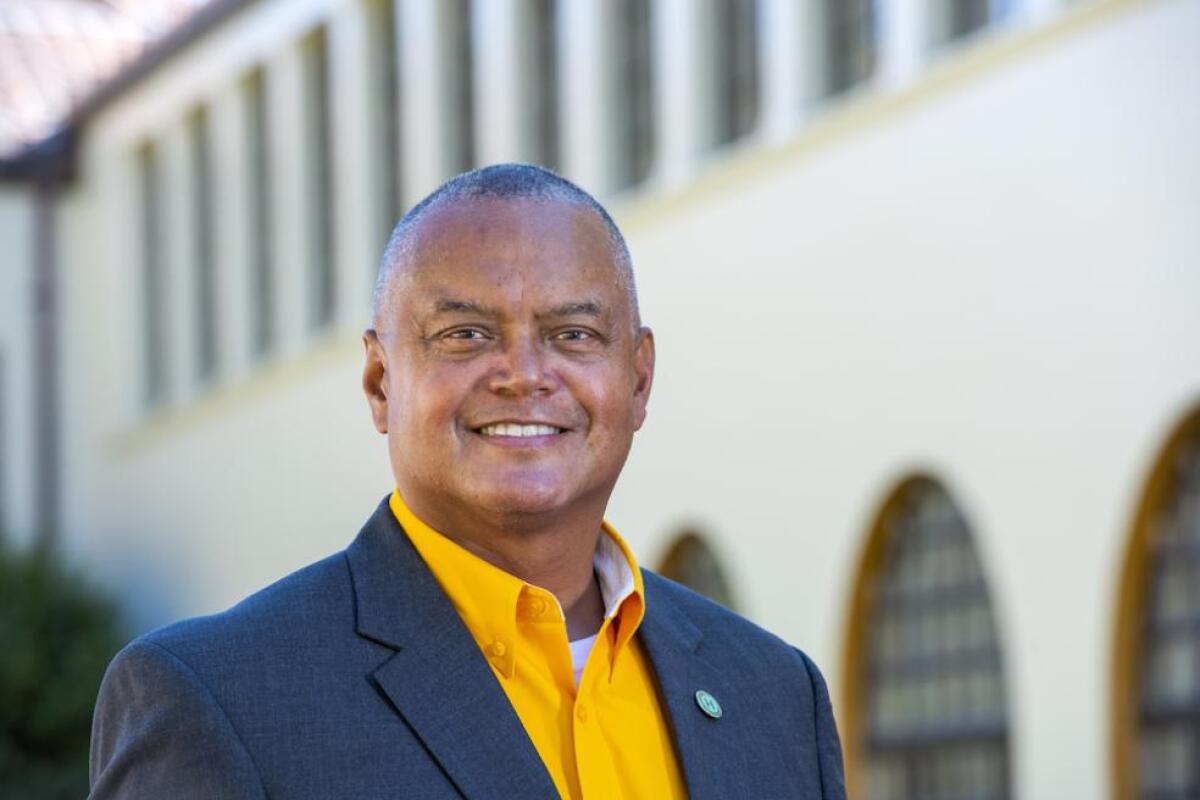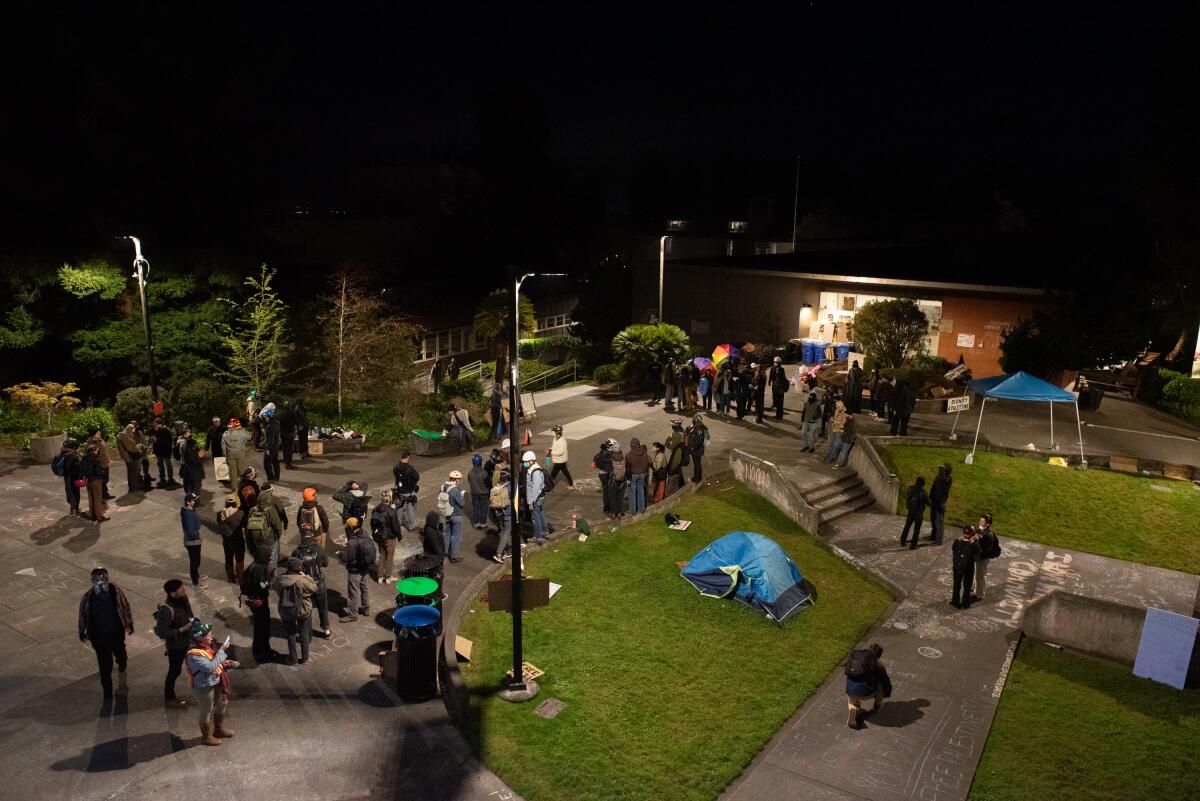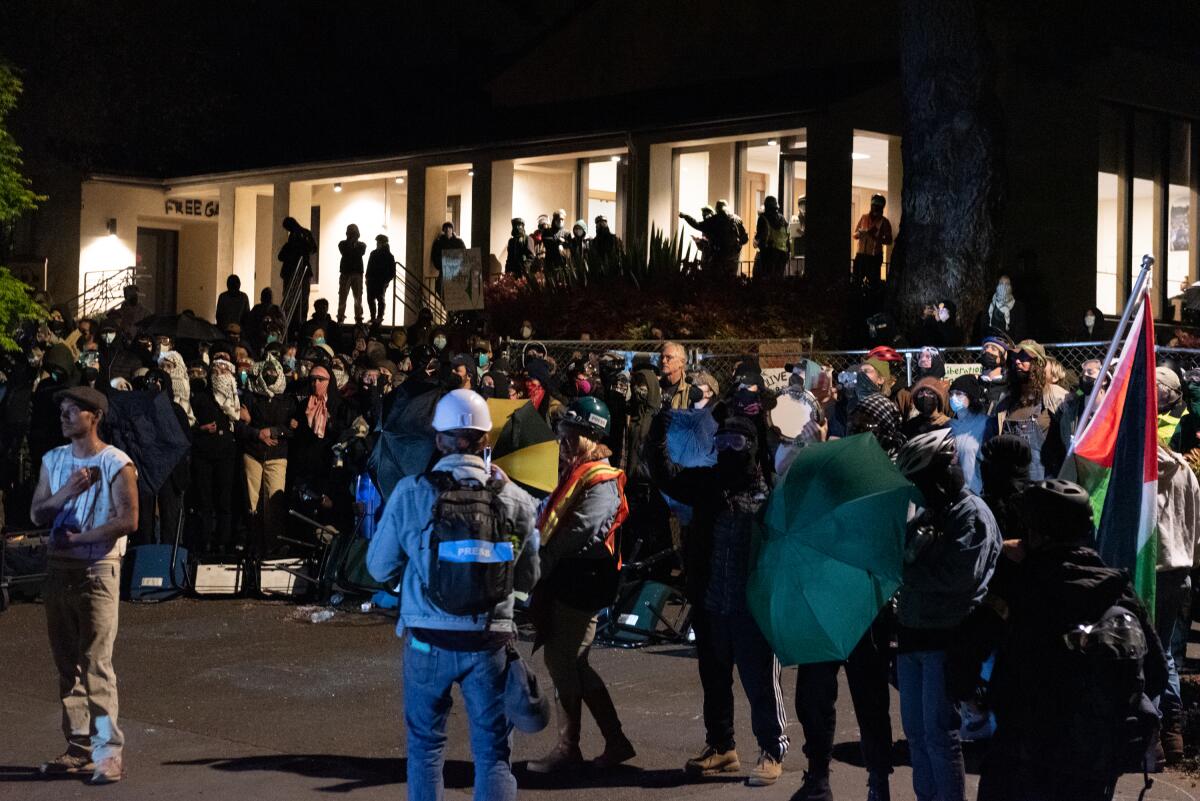
Cal Poly Humboldt University President Tom Jackson Jr. announced Thursday that he is leaving his post at the rural Northern California institution next month, less than four months after the campus drew national attention for its crackdown on pro-Palestinian protests.
In a statement, the university’s first Black president called the Arcata-based school “an amazing place with special people.”
“Like many of you, I wake up every day and remember what a gift I have been given: to have the opportunity to inspire and lead others,” he said of his five years as president. “Your work makes a positive difference for our students. Please never forget that.”
Jackson is stepping aside Aug. 11. Cal Poly officials said an interim president was expected to be appointed shortly, with a national search to find a successor to follow.
School officials said Jackson is not leaving the university. Instead, he is transitioning into a tenured professorship with the College of Professional Studies and the College of Extended Education and Global Engagement.

The Seattle native served as president of Black Hills State University in South Dakota from 2014 to 2019 before starting at Cal Poly in summer 2019.
“Tom Jackson, Jr. has provided visionary, principled, and forward-focused leadership, as well as prudent stewardship during a tenure that has spanned one of the most momentous periods in Cal Poly Humboldt’s history,” Cal State University Chancellor Mildred García said in a statement.
Some faculty and students were not so sanguine about Jackson’s legacy, however, because of his handling of on-campus protests in April.
Masked pro-Palestinian protesters occupied Siemens Hall, an academic building that includes the university president’s office, on April 22. The protesters, most of whom were students, barricaded the entrance with chairs and tables and erected a banner that said, “STOP THE GENOCIDE.”
Three students were arrested after law enforcement officers wearing helmets and riot shields clashed with demonstrators.
The protests swelled, grabbing national attention as videos circulated of protesters thwarting law enforcement efforts to break up the occupation.
After resisting attempts by police in riot gear to remove them from a building, students renamed it “Intifada Hall.” They scrawled slogans such as “land back,” “destroy all colonial walls” and “pigs not allowed” up and down its corridors and wrote “BLOOD ON YOUR HANDS” across the wood-paneled walls of Jackson’s office.
School officials closed the campus on April 22 in what was supposed to have been a temporary shuttering. The closure eventually extended for the rest of the semester, with classes held online.
On April 30, police cracked down on the protest, arresting dozens of students and taking back the campus by force.

Faculty members blamed Jackson for not understanding the school’s culture and history of activism, which included Vietnam War protests in the 1970s and deforestation protests in the 1980s and 1990s.
Assistant professor Rouhollah Aghasaleh, who was arrested at one of the protests, said Jackson “should be held accountable for his decisions that jeopardized the safety and well-being of students and employees in April 2024.”
Dominic Corva, a professor of sociology, said Thursday that he was “incredibly relieved” upon hearing of Jackson’s impending departure.
“I wasn’t sure I could return to work for this university under his administration,” said Corva, who served as a faculty spokesperson and observer during the protests.
Corva said Jackson “escaped consequences” for his actions in April and was not pleased that he was joining the faculty.
“That’s a lot of money that will keep us from adding desperately needed new hires,” Corva said of Jackson’s continued presence on the payroll. “So I am disappointed in that decision, especially since he’s administered austerity since he got here and now becomes part of the problem.”
Before the protests, Jackson was perhaps best known for leading Humboldt’s transition to a Cal Poly, the only one in Northern California.
The new designation, made in 2022, aimed to increase sagging enrollment with high-demand science, technology, engineering and mathematics education and research offerings.
Cal Poly saw a 2% enrollment increase in 2023, bringing its student populace to 5,976. That figure is 14% lower than the nearly 7,000 students enrolled in the fall 2019 semester, Jackson’s first at Humboldt.